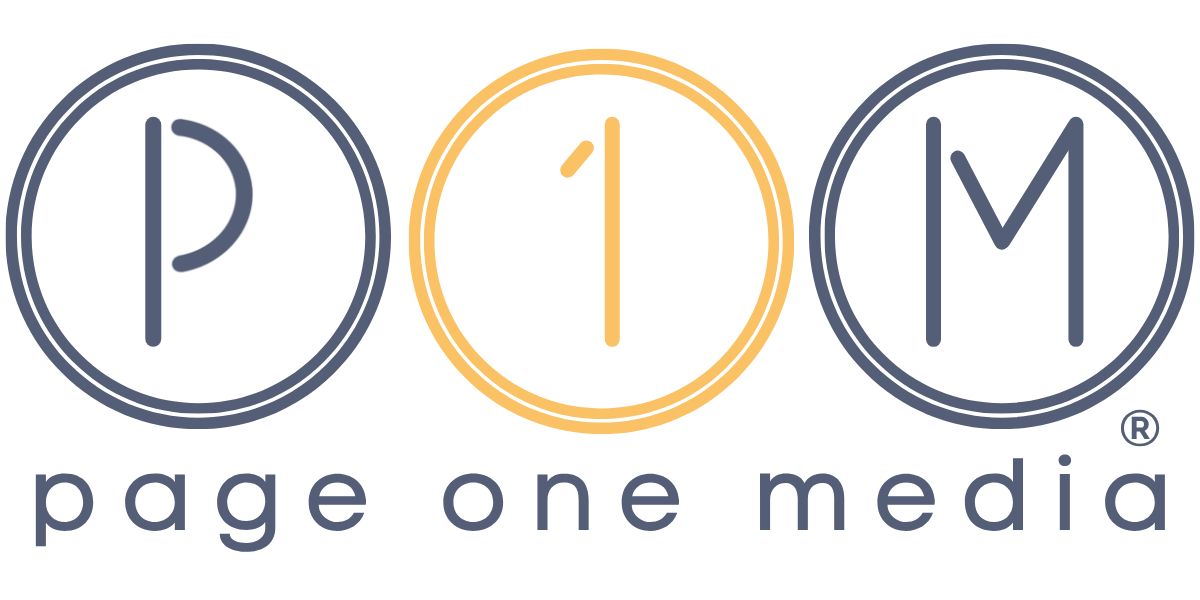
15 Jul The Page One Media Grant Project
I don’t think we’ve ever publicly talked about the Page One Media Grant Project. It’s on our website, so it’s not a secret but we also don’t advertise it. I recently realized that is a mistake on our part because the underserved authors we’re hoping to represent probably don’t know this is available to them. This month on the Page One blog, we’re going to correct that and tell you more about what the Page One Media Grant Project is and what the requirements are for applying to it.
I think we should start with our mission because that’s where the Grant Project really originates:
Page One Media is committed to expanding knowledge through the written word. We help our clients gain traction in the media by making sure they (and therefore we) are seen as an excellent resource to the media. We are committed to working with authors of color and other underrepresented writers to help them publish and have their ideas widely disseminated in the public sphere.
I’ve always believed that change starts with yourself. If I want to see more stories from marginalized groups then I have to be an advocate for that myself. I don’t hide my disability but if you look at me, you wouldn’t know that I am disabled. I have a rare genetic disorder called Ehler’s-Danlos Syndrome. That’s a hard thing to admit to publicly because there is so much stigma around people with disabilities. I won’t go into the details here but it’s a funny thing how having your health compromised can make you even more driven to accomplish as much as you can with the time you have available to you. I want to be part of the change coming to publishing so part of it must start here with us at Page One.
Back to the Grant and the “Why?”
Why make an effort to put underrepresented voices first? Because they’ve been put last for too long. We had a sea change in publishing after George Floyd’s and Breonna Taylor’s deaths. Editors and agents started more actively seeking out manuscripts from writers of color* and other marginalized groups. Marketers and publicists made a greater effort to find audiences for those authors and really tried to understand the work so that they could understand the consumer for those books. But unconscious bias can be a hard thing to overcome and there is no doubt that internally, at publishing houses, choices are made that discount the value of those stories and perhaps give them just a bit less. Less time, less marketing budget, less status on the list, less attention at sales conference. Even just a little bit less can have long-term impacts in publishing because the competition is so fierce. Can this be fixed? Yes, I think it can. Can it be fixed without significant thought, empathy, and concerted effort? No, I don’t think it can.
So why a campaign grant? Many authors who come to us can’t afford our services. If we could, we would help every project we loved, but we’re a very small business. There’s not infinite space on our list and at the end of the day, this is a business that needs to make money to survive and for our employees to thrive. This means we need some parameters around the Grant Project. These parameters help us to make decisions fairly, they delineate how many grants we can afford each year, who qualifies for them, and what the grant amount will be and when we might need to change it, if we can afford to do so. It’s simple math really. We still need to be able to pay our team for their labor so we can’t do a project for free (yet! Maybe someday we will be able to do that). But as the owner of this small business, I’m willing to break even or take some loss in order to help see the world that the Page One team and I are all deeply invested in seeing.
Who Qualifies for a Page One Media Book Publicity Grant?
We take a rather broad view of underrepresented. Any group that has routinely had their books less likely to be acquired or allocated fewer resources can apply for a P1M book publicity grant. If you’re curious about representation in book publishing, there are a number of places where you can dive into more data including WordsRated, PEN America’s 2022 article, and the Cooperative Children’s Book Center. There is a dearth of information about LGBTQIA+ authors, but Melinda Lo is a resource for some information. We have very little, if any, data about authors with disabilities and that’s definitely a problem. Author Penny Batchelor talks about that in her blog post here and Alice Wong wrote a piece for Publishers Weekly about the Disability Visibility Project. There was also an interesting recent article in The Atlantic that covers some aspects of diversity in publishing. If you’re not sure if you qualify, I encourage you to err on the side of applying.
We don’t work with self-publishing authors, so they do not qualify for the grant project. And we can’t currently apply grants to expert positioning campaigns because they require an incredible amount of our team’s time. As is the case with every book and author we work with, we have to love the writing, feel compelled by the story or the research, and be able to understand and communicate about the work in a way that we think will garner interest for it from the media. These qualifiers don’t change for grant recipients, but they are also not held to a higher standard than the other books we work on. We just have to love the book.
Grant recipients receive the same amount of time and effort as any other book campaign we’re working on. There are no shortcuts and there is no midlist at Page One Media. Every book is a project we believe in and work incredibly hard to deliver into the right hands. We know our work is still a very big investment for most authors and we don’t take that investment lightly.
If you have questions, reach out, we would love to hear from you.
The Grant Program by the Numbers
- 1 – the number of grants currently given so far for 2025 (as of the publishing of this post)
- 3 – the number of grants given so far in 2024
- 3 – maximum number of grants we can afford annually (right now in 2024)
- 9 – the number of grants given since we started the project in 2021
- $10,000 average grant relief applied per campaign
- $30,000 grant dollars available annually
If you would like to apply, please get in touch here.
*I’ll caveat this statement by saying there were always editors and agents who sought out marginalized voices but, and this is a big but, they were far fewer than was right and their books never did get quite the same support as other lists.
Sarah Russo is the founder of Page One Media. She is a publishing professional with over twenty years in the industry. You can connect with her on Threads, Instagram, and LinkedIn. You can follow the work of Page One Media on LinkedIn, Threads and Instagram.

